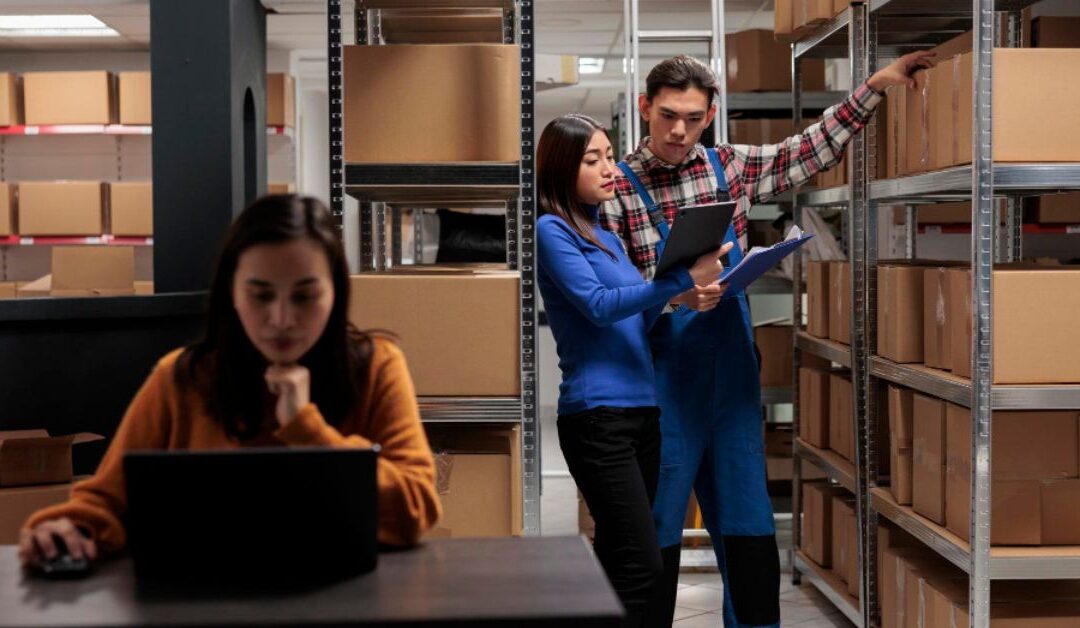Small businesses are the backbone of economies worldwide, fueling innovation, creating jobs, and serving local communities. For these businesses to thrive in competitive markets, efficient and reliable logistics are critical. Logistics goes beyond transporting goods—it encompasses inventory management, supply chain efficiency, order fulfillment, and customer satisfaction. When logistics fail, small businesses face higher costs, delivery delays, and potential loss of customers. On the other hand, reliable logistics open the door to growth, reputation-building, and long-term success.
This article explores why logistics reliability is essential for small businesses and how it shapes their operations, profitability, and customer trust.
Understanding Logistics in the Context of Small Businesses
Logistics refers to the planning, implementation, and management of the movement of goods and services. For large corporations, logistics is often supported by advanced systems and global networks. Small businesses, however, usually operate with limited resources and tighter margins, making reliability even more important.
Reliable logistics for small businesses include:
- Consistent product sourcing from suppliers.
- Safe and timely transportation of goods.
- Accurate inventory tracking and management.
- Affordable and predictable delivery services.
- Compliance with customs, regulations, and industry standards.
When any of these elements falter, small businesses experience disruptions that can negatively affect their competitiveness and growth potential.
Logistics as the Foundation of Customer Satisfaction
In an era where customers expect speed, accuracy, and transparency, logistics plays a direct role in customer satisfaction. For small businesses, every delivery counts—one late or damaged shipment can harm a brand’s reputation.
Key Impacts on Customer Satisfaction:
- Timely Delivery: Meeting delivery promises helps businesses build trust and repeat business.
- Product Safety: Secure logistics ensures items arrive in perfect condition, boosting confidence in the brand.
- Tracking Transparency: Real-time tracking tools give customers peace of mind.
- Reliable Returns Management: Simplified reverse logistics strengthen loyalty by showing commitment to service even after sales.
For small businesses, satisfied customers often translate into positive reviews, word-of-mouth referrals, and repeat sales.
The Cost of Unreliable Logistics
While reliable logistics provide stability, unreliable logistics can bring small businesses significant challenges.
- Delivery Delays: Missed deadlines damage customer relationships and result in lost revenue.
- Increased Costs: Poor logistics often require emergency fixes, raising operational expenses.
- Damaged Goods: Insufficient packaging or mishandling leads to refunds, replacements, and dissatisfied customers.
- Inventory Issues: Stockouts or overstocking disrupt cash flow and sales opportunities.
- Reputational Damage: Negative experiences quickly spread through social media and reviews.
For businesses operating on thin margins, these disruptions can be devastating.
Logistics and Business Scalability
Small businesses aiming to expand must have logistics systems that can grow alongside them. Scalability depends on the ability to handle larger order volumes, wider distribution networks, and international markets without compromising reliability.
Reliable logistics enable scalability by:
- Supporting bulk shipping at lower costs.
- Offering international cargo services with customs clearance assistance.
- Providing technology integration for order tracking and inventory management.
- Streamlining supply chains to accommodate demand spikes during peak seasons.
Without dependable logistics, growth ambitions remain limited, as businesses struggle to meet increasing customer demands.
Building Trust Through Reliability
Trust is a priceless asset for small businesses. Reliable logistics builds trust not only with customers but also with suppliers, partners, and investors.
- With Customers: Reliable delivery reassures buyers that their money is well spent.
- With Suppliers: Efficient systems strengthen relationships and ensure timely restocking.
- With Partners: Logistics dependability encourages collaborations and business partnerships.
- With Investors: A reputation for consistency makes businesses more attractive to potential backers.
Trust fosters long-term loyalty, which is crucial for small businesses competing with larger corporations.
The Role of Technology in Reliable Logistics
Technology has revolutionized logistics by introducing tools that increase transparency, accuracy, and efficiency. For small businesses, adopting these technologies ensures better control of their operations.
Useful Technologies Include:
- Real-Time Tracking Systems: Provide visibility into shipments at every stage.
- Inventory Management Software: Helps maintain stock levels and forecast demand accurately.
- Automated Alerts: Notify businesses about delays, delivery updates, or supply chain disruptions.
- Digital Documentation: Simplifies customs processes and reduces human errors.
- Data Analytics: Offers insights into cost savings and operational improvements.
By leveraging these technologies, small businesses can compete with larger players while optimizing their limited resources.
Reliable Logistics and Cost Efficiency
Logistics reliability is closely tied to financial health. Small businesses with dependable logistics systems can reduce unnecessary expenses while improving efficiency.
- Fewer Delays: Prevents costly penalties and refunds.
- Better Inventory Management: Avoids overstocking and stockouts.
- Optimized Routes: Saves fuel and transportation costs.
- Lower Risk of Damage: Reduces compensation and replacement costs.
- Improved Forecasting: Aligns supply with demand, lowering storage expenses.
By saving costs through reliability, small businesses can reinvest in marketing, product development, or scaling operations.
Logistics in the Age of E-Commerce
The rise of e-commerce has further increased the importance of logistics for small businesses. Online shoppers expect fast, affordable, and transparent delivery. Reliable logistics are no longer optional—they are integral to competing in the digital marketplace.
E-commerce logistics includes:
- Same-Day or Next-Day Delivery Options.
- Seamless Return and Refund Processes.
- Cross-Border Shipping for International Customers.
- Integration with Online Platforms for Order Tracking.
Without reliable logistics, small e-commerce businesses risk losing customers to larger competitors who offer superior delivery experiences.
The Importance of Last-Mile Delivery
Last-mile delivery, the final stage of transporting goods to customers, is one of the most critical aspects of logistics. For small businesses, last-mile efficiency determines customer perception.
Reliable last-mile delivery ensures:
- Goods arrive on time and in perfect condition.
- Customers have positive brand interactions.
- Repeat purchases and referrals increase.
Challenges in last-mile delivery, such as traffic congestion or failed delivery attempts, can damage customer experiences. Partnering with logistics companies specializing in last-mile solutions can help overcome these issues.
Case Example: Small Business Growth Through Reliable Logistics
Consider a small handmade furniture company expanding its market online. Initially, they faced challenges with delayed shipments and damaged products. By partnering with a reliable logistics provider offering real-time tracking, secure packaging, and efficient routes, the business:
- Reduced customer complaints by 70%.
- Increased repeat orders due to timely deliveries.
- Expanded into international markets with confidence.
This case highlights how reliable logistics can directly impact growth, reputation, and profitability for small businesses.
Sustainability in Small Business Logistics
Consumers are increasingly conscious of sustainability, and small businesses can stand out by offering eco-friendly logistics solutions. Reliable logistics providers often integrate sustainability practices that reduce waste and carbon emissions.
Sustainable Strategies:
- Using recyclable packaging.
- Consolidating shipments to reduce trips.
- Partnering with logistics companies using green fleets.
- Offering customers eco-friendly delivery options.
Sustainability not only benefits the environment but also strengthens brand reputation among socially conscious customers.
Overcoming Challenges in Small Business Logistics
Small businesses face unique challenges in logistics, such as limited budgets, smaller staff, and fewer resources. Overcoming these challenges requires strategic planning.
Solutions Include:
- Partnering with experienced logistics companies.
- Leveraging technology for automation and tracking.
- Outsourcing non-core logistics functions.
- Building strong supplier relationships.
- Planning shipments in advance to avoid rush costs.
By addressing these challenges, small businesses can achieve reliability even with limited resources.
The Future of Logistics for Small Businesses
As technology evolves, the future of logistics promises even greater benefits for small businesses. Emerging innovations include:
- AI and Predictive Analytics: Improving demand forecasting and route optimization.
- Blockchain: Creating transparent, tamper-proof supply chain records.
- 5G Connectivity: Enabling faster data sharing and more accurate real-time tracking.
- Autonomous Delivery Vehicles and Drones: Reducing delivery times and costs.
Small businesses that embrace these innovations will gain a competitive edge in the global marketplace.
Final Thoughts
Reliable logistics are not just a support function—they are the lifeline of small businesses. From ensuring timely deliveries and reducing costs to building customer trust and enabling growth, logistics reliability touches every aspect of operations.
In today’s competitive environment, small businesses cannot afford unreliable systems. By partnering with trusted logistics providers, leveraging technology, and focusing on efficiency, they can overcome challenges and position themselves for long-term success.
For small businesses aiming to grow locally or expand globally, reliable logistics are not just important—they are indispensable.

